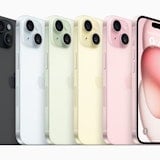 The LTE capable iPhone 5 rumor has had some new life breathed back in to it lately with news that some Apple stores are installing LTE equipment, according to an Engadget tipster. As could be expected, the article has sparked excited posts and heated debate across the internet in regards to the legitimacy of this claim.
The LTE capable iPhone 5 rumor has had some new life breathed back in to it lately with news that some Apple stores are installing LTE equipment, according to an Engadget tipster. As could be expected, the article has sparked excited posts and heated debate across the internet in regards to the legitimacy of this claim.
LTE, or Long Term Evolution, is essentially what most carriers are referring to as “4G” these days. It’s an extremely fast form of mobile internet that is currently enjoying rapid growth within the US and is seeing implementation elsewhere around the globe.
Of course, it makes sense that Apple would release an LTE enabled phone. Many of Apple’s biggest competitors are seeing major success within the US with 4G LTE devices, so why would Apple even consider being left behind?
There’s one main reason we can think of. It’s looking increasingly likely that the next generation of iPhone will be available on every major American network; Verizon Wireless, AT&T, Sprint and T-Mobile. This is unprecedented, as previously only Verizon and AT&T have had access. Even Verizon only got their hands on the iPhone 4 about 6 months after its release. Incidentally, this 6 month delay in a Verizon iPhone 4 release is considered by some to be a driving reason behind the next iPhone’s delayed release date, as Apple may have been unwilling to anger its new Verizon customers by making their phones obsolete a mere 6 months after finally providing them.
The problem with this possibility is that US mobile providers don’t all use the same technology for their networks. For basic phone calls both AT&T and T-Mobile use GSM, where Verizon and Sprint use CDMA. Once you get to the “4G” department it changes again. This time AT&T and Verizon both support LTE, where Sprint uses WiMAX and T-Mobile employs HSPA+ (but is hoping to upgrade to LTE somewhere in the future).
If Apple has been willing to delay its iPhone release just to keep American consumers happy, then what are the chances it will release a device that only supports 4G on two of America’s four major networks? This is all, of course, purely speculative, but it does cast some doubt on the possibility of a 4G iPhone 5.
On the other side of the fence Apple does have to consider its international customers. The rest of the world seems to be accepting LTE as the next mobile broadband standard, so an LTE iPhone 5 might be a good choice after all. But with implementation moving slowly, it might be prudent for Apple to cut its losses and wait until the iPhone “6” to make the jump.
What do you think? Do you think Apple will stick it to its potential T-Mobile and Sprint customers and deliver an LTE enabled iPhone? Or do you think it’s more likely we’ll have to wait another smartphone generation to see one?
Related Articles
Find Better Phones and Plans
Hundreds of cell phone plans unpacked. All the facts. No surprises.


































